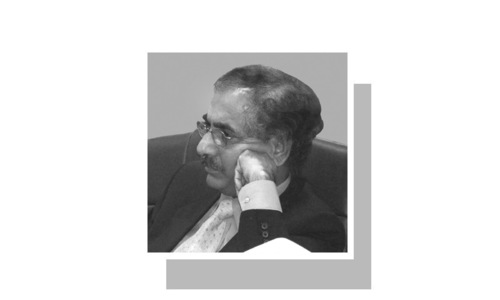WHEN Gen Charles Napier conquered Sindh in 1843, he sent a single-word message to his bosses in London. It read, “Peccavi”, a Latin word that translates to ‘I have sinned’. This was a pun.
More than 180 years later, we learn that Sindh has been ‘sinned’ against once more. How else would you describe the failure of those who control the destiny of this province to empower its children by educating them? This is no exaggeration. A look at the Annual Status of Education Report [ASER] 2023 is enough to inform the reader about the miserable state of education in the province.
Aser is an independent citizens-led group that has been testing children in Pakistan every year since 2008-09 and its results are credible. In 2023, over 1,53,000 children were tested in 274 districts. The findings are shocking.
As has been ASER’s practice, students of Grade III and above were tested by being asked to read a story in Urdu/ Sindhi and a sentence in English, and solve a two-digit division sum of Grade II level. Barely half of the Grade V students tested across the country could give correct answers — 50 per cent, 54pc and 46pc respectively.
Among the provinces, Sindh stood at the bottom rung of the education ladder, with only 39pc, 22pc and 27pc clearing the test. This should give us enough cause for worry. Also disturbing is the steady decline that has been visible in Sindh. Ten years ago, in ASER 2014, Sindh’s children fared much better at 41pc, 23.6pc and 30.5pc.
Corruption is the real malaise that pervades the education sector.
What needs to be done then? At the launch of the Sindh report in Karachi last week, panellists put forward many suggestions that have been made by others as well over the decades. They seemed to be like old wine in new bottles. It would have been instructive to hear the Sindh minister of education on the subject. Unfortunately, he could not attend. Hence we had to be content with the same analyses and remedies that we have been hearing for ages.
Planning is poor. Teachers’ attendance and performance are not effectively monitored. The education budget is insufficient and most of it is consumed by the salaries of the staff. Teachers need training and their numbers need to be increased to make education accessible to all children.
This neglect of details has produced bizarre results. Here is a system comprising 40,382 schools for the entire province. But 89pc of them are primary institutions enrolling children from kindergarten to Grade V. This makes a high dropout inevitable. All students who manage to complete Grade V are not ensured further education as there are only a handful of secondary institutions, which cannot accommodate all of them.
What is worse is that nearly two-thirds of primary schools are staffed by only one or two teachers each. There is no education going on in them even if the teacher is present. Then there are thousands of shelterless schools and teachers who have no schools to report to. This is what the Sindh school census 2022-23 tells us. I have visited numerous such schools over the years. For decades, this paper has been writing about this comedy of errors. The government’s own advisers — be it the legendary Anita Ghulam Ali or Kaiser Bengali — tried hard to make those yielding power see reason.
At the ASER launch, one suggestion put forward was that district education authorities be set up to decentralise the system. On paper this sounds good, but without accountability, it would lead to more corruption. Already the district education officer exercises unparalleled powers in the area of his jurisdiction.
One of them is known to be running his own school and using English as the medium of instruction. There are others running tuition centres. Doesn’t this amount to a conflict of interest? Will the district authorities be able to check corruption, which is the real name of the malaise that pervades the education sector?
Another observation made at the launch event was that political will was needed to reform education in Sindh. Absolutely! That is the real challenge given the fact that exploitative landowners have actually resisted the opening of schools in areas under their jurisdiction. They fear that education would make people aware of their rights and that they would then become more difficult to exploit. The failure of the government to open schools has given a boost to the private sector. Hence the commercialisation of education in a big way.
Can one be optimistic that ASER 2023 is a watershed mark? We will have to wait and see. But we must thank ASER’s team and its driving force, Baela Raza Jamil, for serving as the conscience of the nation and producing this report year after year, when others are making hay when the sun shines.
Published in Dawn, April 5th, 2024














































Dear visitor, the comments section is undergoing an overhaul and will return soon.